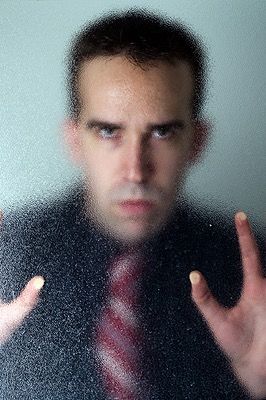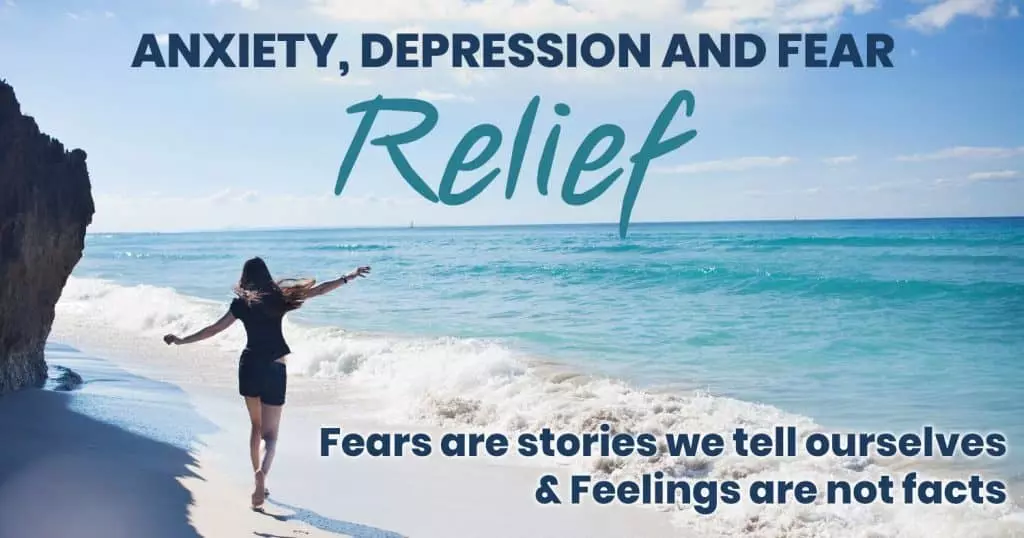
Does just the thought of having an MRI make you nervous?
Do you often feel and think that the walls are closing in on you?
Do you take the stairs to avoid elevators?
Does the sound of an airplane door closing make you anxious?
You know that familiar feeling of the walls closing in on you, the room is growing smaller, and you might even experience trouble breathing. If you’re tired of taking the stairs because you can’t bear the way you feel inside an elevator, then it’s time to consider a proven claustrophobia treatment program.
If you suffer from claustrophobia, then you know how difficult it is. You can tell yourself, “I’m not claustrophobic” from now until the cows come home, but it will not change how you feel.
Through the power of hypnosis many sufferers have overcome claustrophobia. In fact, hypnosis is considered by many to be the best claustrophobia treatment option.
Imagine…
Feeling secure driving in a tunnel
No longer avoiding jobs with offices in tall buildings
Feeling relaxed and at peace while undergoing an MRI
Enjoying all forms of travel
Not avoiding so many things you enjoy for fear that it will trigger you
How do phobias develop?

Phobias tend to result from three main life events or experiences. They include trauma, parental impact on childhood, or observing something terrifying. These factors can cover a very wide range of experiences. The root cause of the fear likely stems from a childhood experience. This experience must be reframed so that the subconscious mind understands that the flight response or fear is no longer necessary.
Various triggers can set off your fear, but your reaction in some instances can be delayed so that you react to something else entirely. Often times, clients are surprised to discover what the initial fear inducing event is, because at face value it does not seem to have a direct connection to the fear. However, there is always a connection although it may not be obvious initially.
During a NYC Hypnosis Center overcome claustrophobia hypnosis session, we will guide you into hypnosis and gain access to your subconscious mind. While in this deeply relaxed and focused state, you may discover that your fear stems from something that happened when you were little – perhaps during a blackout you felt trapped and miles away from your parents. Your subconscious can take a memory as simple as that, file it away, and embellish it. The result is an irrational fear that you do not understand.
Video Testimonial
Hypnosis for Claustrophobia can help reprogram your mind and facilitate behavioral change.
So, how does hypnosis help you overcome your fear?
During a NYC Hypnosis Center overcome claustrophobia hypnosis session, you can identify the event from your past that has been blown out of proportion. Contrary to what you might think, the subconscious mind does not judge the fear; it is simply attempting to protect you, its host. Once the event is identified, your hypnotist can then reframe the way your subconscious mind perceives that event, allowing the fear and anxiety to be released.
In addition, your New York Hypnotist may use detailed visualization techniques to help you move beyond your fear. You may be instructed to imagine having an MRI – without being terrified of the confined space you find yourself in. Hypnosis is considered by many to be the best claustrophobia treatment option.
A New York City Hypnosis Overcome Claustrophobia hypnosis session can retrain your mind to:
Eliminate your fear of Tight or Closed in Spaces completely
Provide you with the freedom to take an elevator, train, or car anywhere you want free of fear
A Closer Look at Claustrophobia
Claustrophobia can be understood as a specific type of anxiety disorder that is characterized by an intense fear of small or confined spaces. This distressing condition is relatively common, with statistics indicating that nearly one out of every ten individuals may be affected.
The triggers for claustrophobia can be as varied as the individuals who suffer from it. The common thread, however, is a sense of confinement or entrapment. Situations such as being in a crowded elevator, navigating a tunnel, being inside a car, air travel, or even changing clothes in a small room can provoke unease or fear in a person that is experiencing claustrophobia.
The extent to which claustrophobia affects individuals can also vary significantly. For some, the fear may merely cause discomfort or be a minor annoyance. However, for others, the mere thought of a triggering situation can lead to severe anxiety or even a full-blown panic attack.
Delving into the Specific Fears Related to Claustrophobia
Among the diverse triggers for claustrophobia, certain scenarios stand out for their specific challenges.
The thought of undergoing MRI procedures can instill considerable fear in claustrophobic individuals. The prospect of lying still in a narrow, enclosed space can create such dread that some people might eschew necessary medical screenings or treatments, fully aware of the potential health implications.
Claustrophobia often provokes fear in situations where individuals feel enclosed. The apprehension can arise in a variety of settings such as cars stuck in traffic, cabins on planes or trains. Other situations that can trigger the fear are being in elevators or narrow staircases, subways or underground passages, storage areas or basements, and packed rooms with a high occupancy rate.
Moreover, claustrophobia can lead to anxiety about scenarios that limit free movement, even if they don’t involve small spaces. This fear can manifest in diverse situations such as sitting for a haircut or dental cleaning, riding a roller coaster, or being in a busy amusement park with lots of people. Severe cases might involve refusal to wear a cast for a broken bone due to the restriction of movement it imposes.
Physical and Emotional Impacts of Claustrophobia


Claustrophobia not only causes fear and anxiety but can also lead to several physical symptoms. These include, but are not limited to, profuse sweating, shaking, rapid or heavy breathing, stomach discomfort, dry mouth, having a sensation of fainting or dizziness, and experiencing sensations of numbness or tingling.
In addition to these physical manifestations, claustrophobia can cause significant emotional turmoil. The most commonly reported emotional response is a profound feeling of losing control. Additionally, people with claustrophobia may experience an intense fear of fainting or dying or be overwhelmed by feelings of terror or impending doom.
Traditional Claustrophobia Treatment
One of the well-recognized treatment methods for claustrophobia is gradual exposure. This technique involves gradually introducing the individual to the object or situation that elicits fear, with the aim of reducing the intensity of the fear response over time. This may involve looking at images of small spaces, followed by spending brief periods in such spaces, before gradually extending the duration.
However, this method can present challenges. Some people may be too frightened to even approach the trigger, while others may experience panic attacks when attempting to confront their fear.
In these cases, hypnosis can be beneficial.
Exposure Therapy – Hypnosis for Claustrophobia
When someone is triggered by a fear of tight spaces, their anxiety level spikes, making it challenging for them to confront the phobia or think clearly. However, when a client enters a hypnotic trance state, these anxieties are significantly reduced, leading to a calmer and more relaxed state, making them easier to work with. The fear response to the phobia is also generally diminished, allowing a seasoned hypnosis practitioner to use exposure techniques to address claustrophobia without the client feeling overly anxious.
Moreover, during hypnosis, a client’s subconscious becomes more receptive to hypnotic suggestions. These directions and suggestions given to a client can boost their confidence and decrease their anxiety, which helps them feel more at ease about their fears.
Applying Hypnotherapy for Claustrophobia
Hypnosis operates on several key principles when it comes to treating claustrophobia. It promotes a deep sense of relaxation, which can help to alleviate anxiety and foster a more balanced response to fear-inducing scenarios. It can involve positive affirmations as well as visualizations, and mental rehearsal during the hypnotic state to counteract fear and promote relaxation.
A crucial aspect of hypnotherapy for claustrophobia is to explore and identify the root cause of the claustrophobic fear. Understanding the genesis of the fear can be invaluable in modifying the individual’s reaction to claustrophobic situations. Claustrophobia hypnosis helps to delve into the subconscious mind where such memories are often stored, providing the opportunity to understand and manage the fear in a more constructive manner.
Exploring the Roots of Claustrophobia
The emergence of claustrophobia often ties back to traumatic events or influences in an individual’s past. It could stem from an early life experience of feeling trapped in a confined space without the possibility of help from a caregiver, thus triggering panic. Alternatively, a person may develop claustrophobia due to learned behaviors from close friends or parents, or even neurological changes in the brain’s fear regulation system.
The subconscious mind plays a pivotal role in the formation and perpetuation of claustrophobia. Since these fears often originate in the subconscious, accessing and understanding these deep-rooted anxieties through therapies such as claustrophobia hypnosis can significantly aid in their management.
Thought Transformation via Hypnotherapy
Hypnotherapy for Claustrophobia offers a practical and effective method for reshaping perceptions about small spaces. By helping individuals visualize these spaces in a new, non-threatening light, hypnotherapy can gradually reduce their fear response.
Hypnosis for claustrophobia, in particular, has proven useful in reshaping reactions to fear-inducing triggers. By introducing suggestions during the hypnotic state, it can help create new, less fearful responses to previously scary situations or environments.
Hypnotherapy’s Proven Effectiveness
A notable example of the success of claustrophobia hypnosis lies in its use for treating MRI-induced claustrophobia. In a comprehensive study, it was found that the group employing self-hypnosis saw a significant decrease in claustrophobic reactions, compared to those who didn’t use this technique. The self-hypnosis group also had fewer members needing sedation.
Moreover, a review of 15 research studies on hypnosis’ efficacy in treating anxiety showed positive outcomes. Anxiety levels decreased by 79% among participants who used hypnosis for claustrophobia, with 84% of this group reporting better results than their non-hypnosis counterparts.
The NYC Hypnosis Center 4 Step Overcome Claustrophobia Hypnosis Program Can Help You
- Identify When, Where, and What Triggers Your Fear
- Replace Catastrophic Thoughts with Truthful Statements
- Assist in Reprogramming the Way You Think About & React to Closed in Spaces
- Teach Self Hypnosis for Daily Reinforcement
The Transformative Power of Hypnosis for Claustrophobia
The importance of understanding claustrophobia lies in its widespread prevalence and the debilitating effect it can have on individuals. Effectively treating this disorder requires innovative methods that address the root cause of the fear, such as hypnosis for fear of tight spaces.
Hypnotherapy’s effectiveness in alleviating claustrophobia and related anxieties has been well-documented. By promoting relaxation, reframing thoughts, and exploring the root cause of the fear, it offers a comprehensive and effective approach to managing this complex condition.



